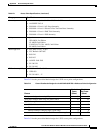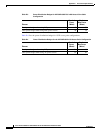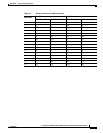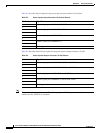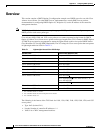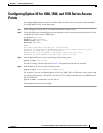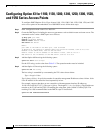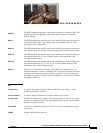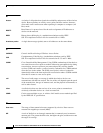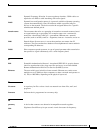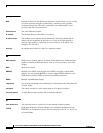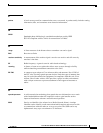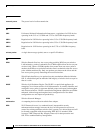
GL-1
Cisco Aironet 1550 Series Outdoor Mesh Access Point Hardware Installation Guide
OL-24247-01
GLOSSARY
802.3af
The IEEE standard that describes a mechanism for Power over Ethernet (PoE). The
standard provides the capability to deliver both power and data over standard
Ethernet cabling.
802.11
The IEEE standard that specifies carrier sense media access control and physical
layer specifications for 1- and 2-megabit-per-second (Mb/s) wireless LANs
operating in the 2.4-GHz band.
802.11a
The IEEE standard that specifies carrier sense media access control and physical
layer specifications for wireless LANs operating in the 5-GHz frequency band.
802.11b
The IEEE standard that specifies carrier sense media access control and physical
layer specifications for 5.5- and 11-Mb/s wireless LANs operating in the
2.4-GHz frequency band.
802.11g
The IEEE standard that specifies carrier sense media access control and physical
layer specifications for 6, 9, 12, 18, 24, 36, 48, and 54 Mb/s wireless LANs
operating in the 2.4-GHz frequency band.
802.11n
802.11n is a specification for wireless LAN (WLAN) communications. An
addition to the 802.11 family of standards, 802.11n increases network speed and
reliability and extends the operating distance of wireless networks. Raw data
throughput is expected to reach as much as 600 Mb/s, or more than 10 times the
throughput of 802.11g
A
access point
A wireless LAN data transceiver that uses radio waves to connect a wired
network with wireless stations.
ad hoc network
A wireless network composed of stations without access points.
antenna gain
The gain of an antenna is a measure of the antenna ability to direct or focus radio
energy over a region of space. High gain antennas have a more focused radiation
pattern in a specific direction.
associated
A station is configured properly to allow it to wirelessly communicate with an
access point.
AWPP
Adaptive Wireless Path Protocol.



